Four months after Hurricane Irma slammed into Florida’s Gulf Coast, some public gardens are still picking up the pieces. On December 10, 2017, Longwood sent a team of 12 staff members to Florida to assist with post-hurricane recovery at Montgomery Botanical Center (Coral Gables), Naples Botanical Garden, and Vizcaya Museum and Gardens (Miami), all of which suffered extensive damage. While much of the assistance provided immediately after the hurricane focused on removal of debris, the gardens were in desperate need of skilled labor to assist with tasks such as structural pruning and replanting.
Teams of four staff members went to each garden to offer assistance, with Koa Kanamee, Joyce Rondinella, and April Bevans serving as team leads. Here are their stories detailing their recovery efforts at our sister gardens.
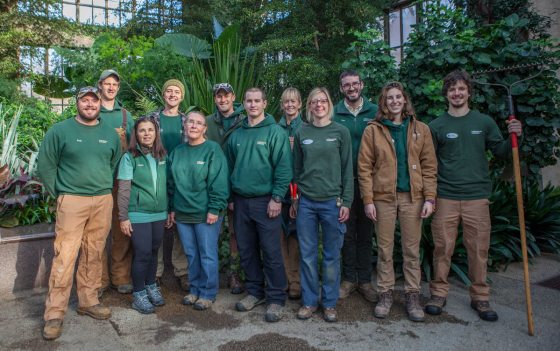
Vizcaya Museum and Gardens
By Koa Kanamee, Senior Horticulturist
Team Vizcaya: Ben Wright, Arborist; Meredith Hudson, Intern, Natural Lands; and Emily Salmons, Horticulturist
Practicing the art of horticulture at the ocean’s edge can be extremely precarious. At Vizcaya Museum and Gardens—the spectacular Gilded Age estate of James Deering—Hurricane Irma pushed a 6-foot storm surge inland with sustained winds of up to 70 mph and even higher gusts. Broken by the wind and washed away by the water, many of Vizcaya’s historic plantings and hardscapes were severely damaged. Two areas in particular, the David A. Klein Orchidarium and the Central Parterre Garden, were nearly swept away. In their place a thick mat of debris and months of cleanup were all that was left behind.
But where disaster strikes opportunity knocks! Hurricane Irma gave the Vizcayan horticulturists the opportunity to renew long-overgrown plantings, reinvigorate the native tree canopy, and restore the central parterre garden back to its original glory. The team from Longwood—composed of two horticulturists, an arborist, and an intern, assisted these recovery efforts by digging, planting, pruning, arboreal work, and debris removal.
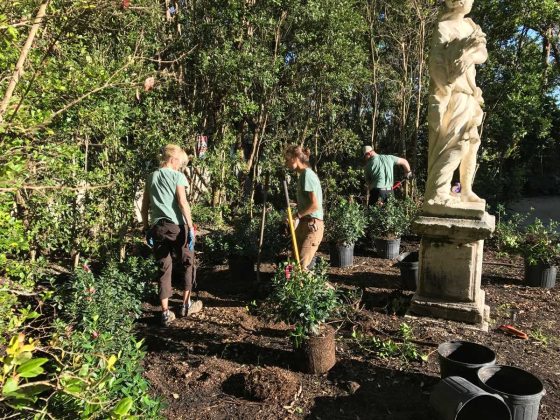
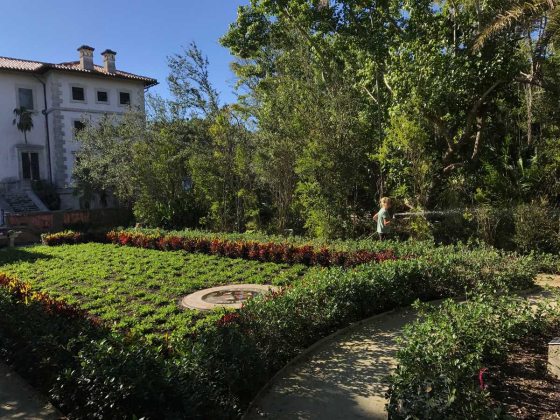
Naples Botanical Garden
By Joyce Rondinella, Senior Horticulturist
Team Naples: Katy Merrington, Trainee, Education; Tim Erdman, Horticulturist; and Seth Strickland, Horticulturist
Naples Botanical Garden is a 170-acre world-class garden founded in 1993, featuring the plants and cultures of the tropics and subtropics.
Naples was hit hard by Hurricane Irma, but it was clear that the gardeners had been hard at work as the worst of the brush had been cleared by our arrival. At first glance, it was difficult to even tell that a hurricane had passed through the gardens; however, closer scrutiny revealed the stresses placed on the understory plants after so much canopy loss.
In reestablishment efforts, the Longwood team embarked on planting new herbaceous material, while pruning and managing some finer debris to finesse the gardens back to their former glory. As a relatively young institution, the team from Naples was eager to hear how we operate at Longwood. After meeting with several departments, both parties left with fresh ideas and eager innovations.
Beyond the work, it was a delight to build a greater rapport with the people and plants at Naples Botanical Gardens. The gardens are a gem in an already floriferous ecology, and the Longwood team was honored to ally with them in what will surely be an enduring relationship.
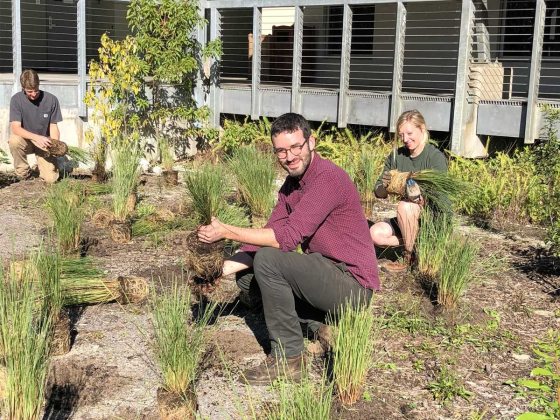
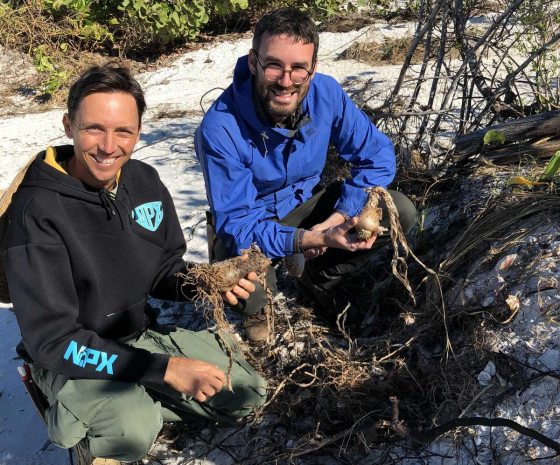
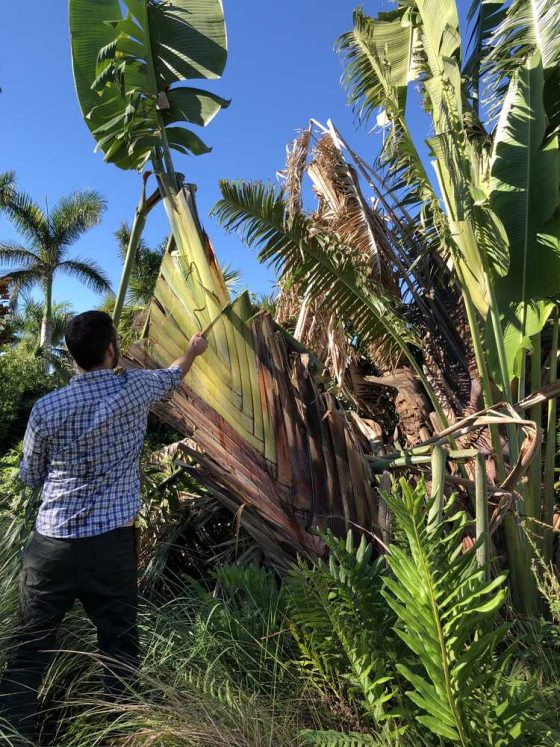
Montgomery Botanical Center
By April Bevans, Senior Horticulturist
Team Montgomery: Calvin Cooper, Natural Lands Caretaker; Erik Stefferud, Land Stewardship Technician; and Collin Hadsell, Intern, Outdoor Display
Team Montgomery was tasked with clearing down deciduous trees, dragging out brush, and pruning to encourage healthy growth of fallen trees.
The 120-acre Montgomery Botanical Center, located south of Miami in Coral Gables, has one of the largest and finest collections of palm and cycads in the world. Its mission is to advance the science of tropical botany, and they sustained severe damage to the collection when Hurricane Irma passed through in early September.
During Hurricane Irma, a prized palm, Corypha taliera, was pushed over. It is extinct in the wild and fewer than two dozen survive today in botanic gardens. However, unlike the trees we have here in the Northeast, toppled palms can be stood back up, and if braced and irrigated correctly, they will continue to grow. With the leaves trimmed back to prevent water loss, this Tali palm will now have a chance to recover.
Another big task was to clear a fallen Bucida buceras. With Erik on the chainsaw, Calvin and Collin driving the dump truck, and me dragging brush, we got the tree finished by mid-morning the next day.
For our last project, we tackled another large fallen tree. This one was still alive on one side, so the Montgomery Botanical Center decided to try to let the tree live. After pruning all the dead wood, we hope it will eventually take root.
The staff at Montgomery Botanical Center could not have been more kind, and we thank them for sharing their knowledge and for making us feel so welcome.
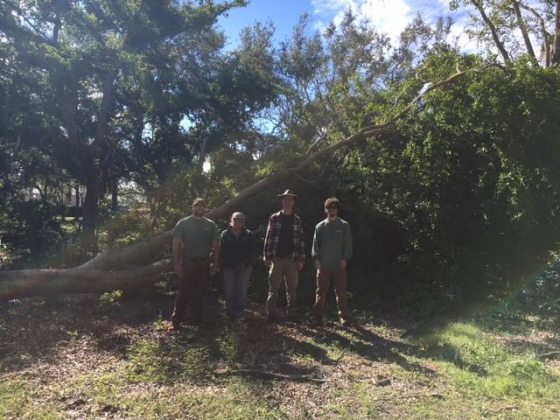
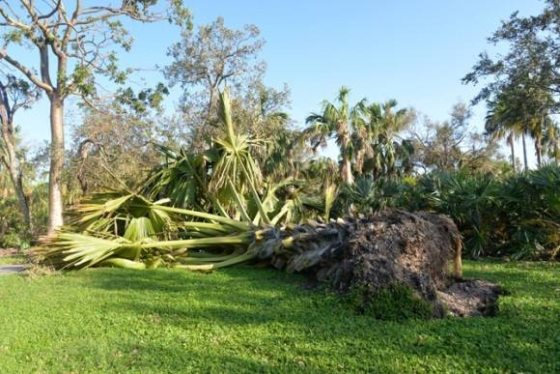
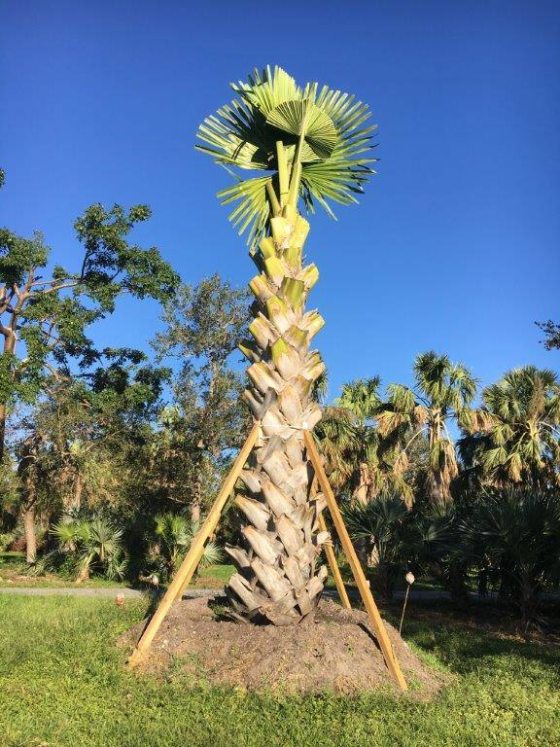
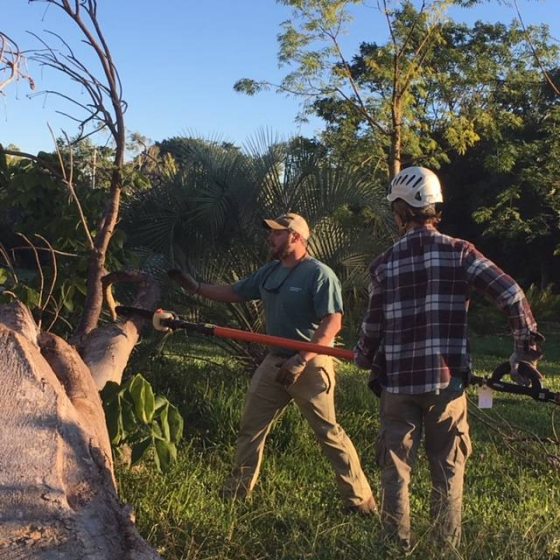
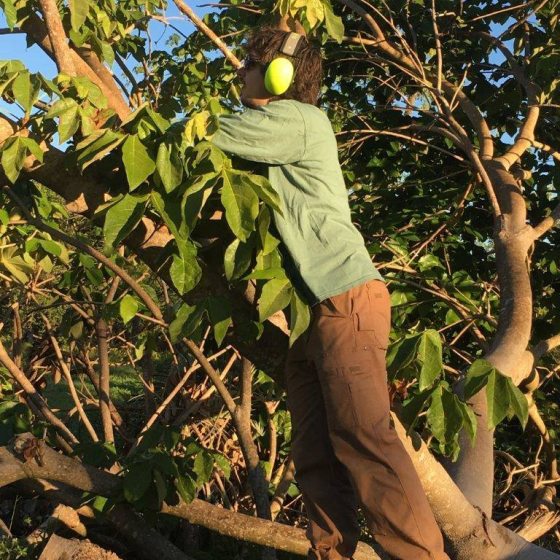
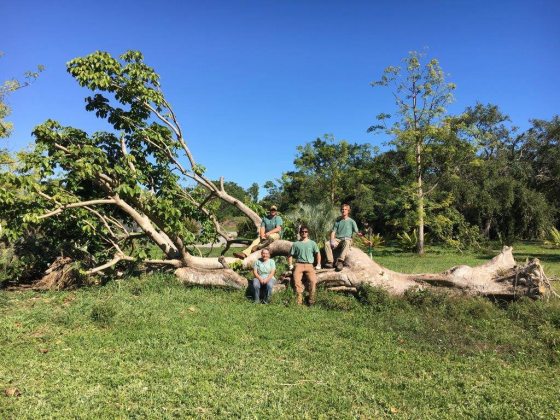
One thing all the teams had in common was their desire to help their fellow horticulturists and gardens. But our teams also benefitted from the experience, gaining valuable insight into a plant palette that for some was completely unfamiliar, learning about the operations of other gardens, and gaining valuable insight into the many challenges associated with rebuilding after Mother Nature’s wrath.
For more information on Garden to Garden Disaster Response, visit https://publicgardens.org/disaster-response-center.


